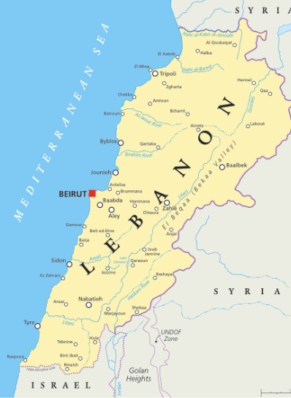KANSAS CITY, MISSOURI, US — In a sudden, horrifying flash, Lebanon, a country already in the throes of food insecurity, saw the main cog in its food pipeline go up in an immense orangish-black fireball.
The massive Aug. 4 explosion at the Port of Beirut not only killed several hundred people, injured thousands more and left more than 300,000 homeless, it also severely damaged the port’s grain silo complex that stores and distributes an estimated 85% of the country’s imported grain. Only a relatively small amount of grain was stored in the silos at the time of the blast, but none of that estimated 15,000 tonnes — its capacity is 120,000 tonnes — could be salvaged.
Perhaps the only bit of good fortunate in the tragic event was that the silos were emptier than usual as the country tried to meet a shortage of bread that surfaced recently due to the COVID-19 pandemic and severe economic depression plaguing Lebanon, where inflation has risen by over 100% during the past year. Had the silos been closer to capacity, much more grain would have been destroyed and a greater amount of highly combustible grain dust could have been available to ignite an even larger explosion, causing greater loss of life and property damage, as hard as that is to imagine.
Sadly, officials say the incident should have been prevented. Lebanon President Michel Aoun said the blast was caused by 2,750 tonnes of ammonium nitrate that had been unsafely stored near the grain elevator since 2013 when it was confiscated from an incoming ship. It had been reportedly stored in a nearby warehouse despite warnings that, for safety reasons, it needed to be relocated. Ammonium nitrate is an agricultural fertilizer that has been used in terrorist attacks such as the Oklahoma City, Oklahoma, US, bombing in 1995 and the Bali, Indonesia, bombing in 2002. Although initial reports found no evidence of a terror attack in Beirut, the grim result was the same. In addition to mangling the grain silo, the blast damaged two vessels offloading wheat at the time of the explosion, ship loading and unloading equipment, as well as a Bakalian Flour Mills plant located near the port.
A major consumer of flatbread, Lebanon’s domestic demand for wheat ranges from 35,000 to 40,000 tonnes per month. Domestic production only covers 10% of that demand, making the country highly dependent on wheat imports — around 1.2 million tonnes per year — mainly from Russia and Ukraine.
At the time of the explosion, officials estimated that Lebanese flour mills and other grain end users had about a month’s worth of inventory before they would need additional supplies. Unlike many other countries, the Lebanese government does not have a grain reserve program, so the global food supply chain, already under extreme duress due to the pandemic, now has another obstacle to overcome in Lebanon — namely, how to get hundreds of thousands of tonnes of grain into the country with its biggest port destroyed and out of commission. The plan is to send most imported grain through the Port of Tripoli and then on to processors.
The day after the incident, Australia stepped forward with a $1.4 million donation to the World Food Programme and the Red Cross to aid Beirut. Let’s hope other governments and international agencies as well as private industry can work together to secure an adequate supply of grain for Lebanon, a country that has endured more than its share of tragedy over the years and deserves better.




